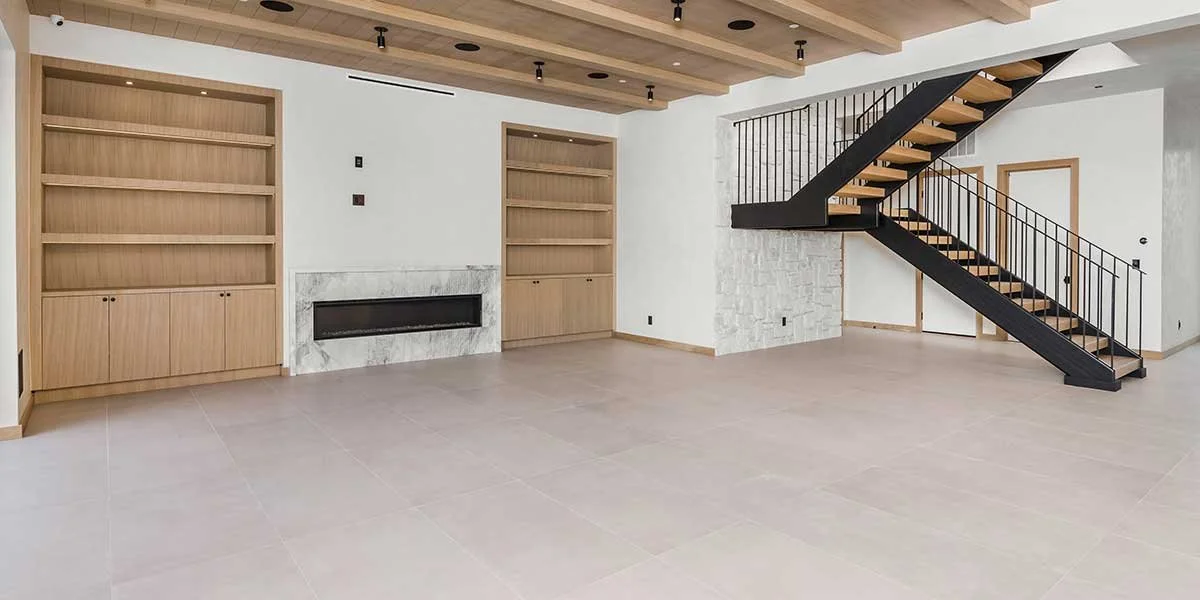Do You Need a Permit To Remodel Your Basement?
When it comes to remodeling a basement, local laws and regulations determine whether a permit is required. In most cases, homeowners who are adding walls or plumbing fixtures will need one. If you’re ever unsure, hiring a local design-build contractor helps take care of all the logistics.
Learn more about permits and why they’re important as part of local basement finishing building codes.
What Are the Rules About Permits?
When is a permit required for a basement renovation? Permitting requirements vary from location to location. Although general recommendations about construction work exist in things like the National Electrical Code, rules about permits are locally managed.
Your city or county government usually will have its own laws that spell out building codes. These codes ensure that all remodeling and construction projects are performed safely, reducing the risk of injuries or fires.
Your local building and construction department is the managing authority for permits. After you request one, the building inspector can visit the job site at any time to ensure the work abides by the appropriate building codes. If not, you may need to backtrack and start over.
Common Basement Remodeling Tasks That Require a Permit
So, when do you need a permit to remodel your basement? Any major construction work almost always needs a permit. Examples include:
Putting in new drywall
Installing new wall or ceiling framing
Adding/replacing plumbing or electrical
Adding a bathroom or kitchen
Installing new HVAC vents
Adding electrical switches or outlets
Adding new lighting fixtures
Installing a new natural gas line
Additionally, you will probably need a basement egress window permit if trying to create a bedroom in a basement.
Basement Remodeling Work That Doesn’t Need a Permit
Do you need a permit to finish a basement? Likely not if you’re doing primarily cosmetic work. Basement remodeling ideas that don’t necessarily require permits include:
Installing flooring
Painting walls
Painting concrete flooring
Changing a shower head
Swapping out appliances
As a general rule, if you are not building/taking down walls, adding plumbing, or doing rewiring, you probably don’t need a permit. Always consult a professional to make sure.
Importance of Obtaining Permits
Do you need a permit to remodel my basement, or can you just do the work without one? Obtaining permits before doing construction protects the value of your home. The inspection process that’s part of obtaining permits ensures electrical and plumbing work meets certain safety standards.
When it’s time to sell the house, unpermitted work can cause significant headaches. Prospective buyers might not trust that the wiring and plumbing are safe when remodeling occurred without permits. Your real estate agent might require you to list any unpermitted work on the sales documents.
If you requested a permit but didn’t finish the job, you may also have problems when selling the house. If the building inspector doesn’t sign off on the work, the permit remains open, which may scare off some buyers.
Take the Mystery Out of Remodeling and Permitting With Vatter Construction
So, do you need a permit to remodel your basement, and is this something you should worry about? Permitting is important for ensuring that your basement remodeling ideas come to life safely.
When you hire our design-build experts, we handle all aspects of obtaining the permits for you. You won’t have to worry about working with the local building inspectors, either. To request a consultation, contact us today at (717) 883-5809.
Frequently Asked Questions
If you ever have questions about the need for permits, our design-build experts are happy to help. Don’t see the answers you’re looking for below? Reach out to our friendly team.
-
A permit is an agreement between a property owner and the local government that your construction project will follow the appropriate building codes. Building inspectors will inspect and monitor the ongoing work.
-
Permits are not all the same. Different permits are available for general construction, electrical, plumbing, and HVAC work. Your project might need more than one type of permit to go forward.
-
Compared to the construction cost, residential building permits are manageable, usually ranging from $50 to a few hundred dollars. Each local building inspector’s office sets its permit prices.
-
When you hire an experienced design-build team like the one at Vatter Construction, you can trust us to manage the entire local permitting process for you.

